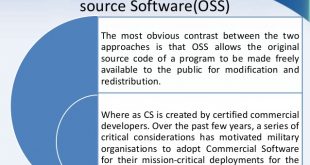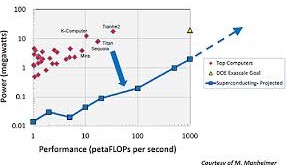Open source software is free to license, the preferred choice of geeks everywhere, for rapid development for instance impromptu mapping projects to help victims of the 2010 Haiti Earthquake where open source delivered results much faster than traditional methods. “It probably would have taken a year to come up with …
Read More »DARPA’s GCA harnessing commercially available Geospatial Imagery on secure cloud-based platform for Defense Analysis
The rapid pace of new commercial satellite constellation launches has led to a corresponding increase in the amount and availability of geospatial data. While these constellations largely focus on non-military uses, their data has numerous military applications. For example, the new constellations provide optical, synthetic aperture radar (SAR), and Radio Frequency …
Read More »US DOD Cloud Strategy plans enterprise wide cloud infrastructure to ensure warfighters have access to real-time, mission-critical data
Cloud computing has burst recently into technology and business scene promising great technical and economic advantages, like offering On-demand provisioning of computer services, improved flexibility and scalability as well as reducing costs. Another attractive point of the cloud is its ability to enable a mobile workforce, which brings enhanced flexibility …
Read More »Quantum routers is key technology for Quantum internet—the quantum version of the current Internet
Quantum information is the enabling factor behind a number of emerging technologies that many physicists expect to have a huge impact on society in future: powerful quantum computers, (almost) perfectly secure quantum cryptography and the quantum internet that will distribute these capabilities round the planet. Quantum cryptography is an emerging technology …
Read More »Military decision support require efficient optimization algorithms
Research in military mission planning is an important field. Today military operations rely on increasingly complex joint and multinational environments. This calls for innovative concepts, doctrine, and technologies to support the emergence of new planning and execution systems that are more flexible, adaptive, inter-operable, and responsive to a time-varying and …
Read More »Next-generation maritime inertial navigation systems addressing the navigation and localization challenge of Autonomous Underwater Vehicles (AUV), critical for commercial and military missions
Autonomous Underwater Vehicles (AUV), also known as unmanned underwater vehicle, conducts its survey mission without operator intervention. Their autonomy allows AUVs to be used for missions where a surface vehicle or manned submersible would be at risk, such as mine countermeasure (MCM), under-ice operations or underwater survey missions such as …
Read More »Next generation Green Supercomputers based on superconducting and superconducting spintronics to enable modern nuclear weapons design, Big data, intelligence analysis and Cybersecurity
Today, silicon microchips underlie every aspect of digital computing. Now Moore’s Law is stuttering, and the world’s supercomputer builders are confronting an energy crisis. But those big gains using silicon seem to have ended, with the high-end Intel Core i7 chips, for instance, have been on computer store shelves for …
Read More »In the era of Electronic, and Cyber Warfare, Pigeons still provide alternative mode to transfer massive amount of data securely
The homing pigeon is a variety of domestic pigeon (Columba livia domestica) derived from the rock pigeon, selectively bred for its ability to find its way home over extremely long distances. The wild rock pigeon has an innate homing ability, meaning that it will generally return to its nest, (it …
Read More »DARPA L2M program exploring new approaches to enable lifelong learning for AI systems and making them smarter, safer, and more reliable
Machine learning (ML) methods have demonstrated outstanding recent progress and, as a result, artificial intelligence (AI) systems can now be found in myriad applications, including autonomous vehicles, industrial applications, search engines, computer gaming, health record automation, and big data analysis. However, Current ML systems experiencing errors when they encounter …
Read More »Metamaterial based Analog computers can provide extremely high computational power with low energy consumption
High speed Supercomputers enable advanced computational modeling and data analytics applicable to all areas of science and engineering. They are being widely used in applications like Astrophysics, to understand stellar structure, planetary formation, galactic evolution and other interactions; Material Sciences to understand the structure and properties of materials and creation …
Read More » International Defense Security & Technology Your trusted Source for News, Research and Analysis
International Defense Security & Technology Your trusted Source for News, Research and Analysis









